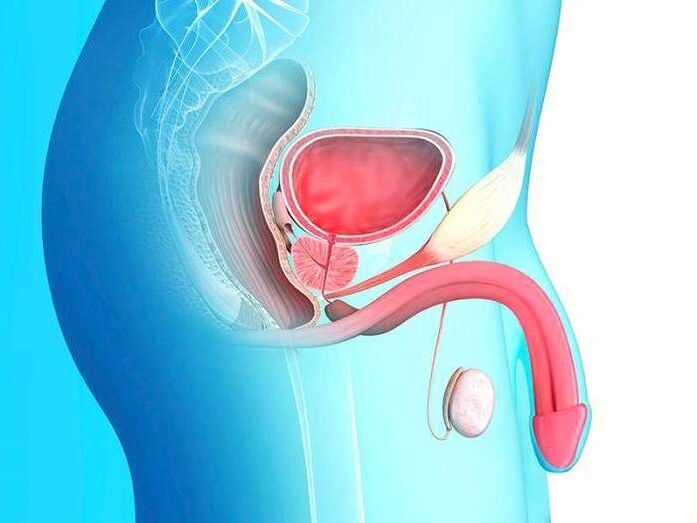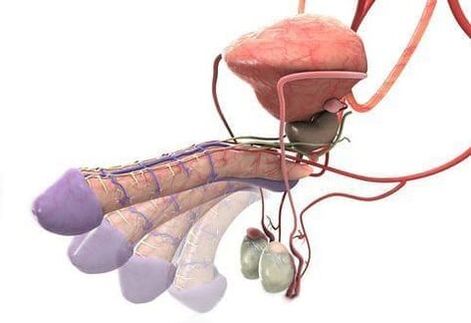
Surgical penis enlargement is a radical method that helps men get rid of complexes, sexual fears, low self -esteem and other problems related to insufficient length or thickness of the reproductive organs.
The operation has certain clues. Medical procedures are performed for micropenis pathology - the length of the penis at maximum stretch or in the state of erection is not more than 4 cm However, manipulation can also be performed at the request of a man if he is not satisfied with the size of the penis.
Before surgery, a man needs to undergo an examination. It includes laboratory tests and instrumental diagnostics. This is necessary to exclude contraindications, as well as to minimize the possibility of complications.
Surgical treatment of small penis length/thickness is carried out with different methods. The choice of method is determined by the qualifications and experience of the doctor, the physiological characteristics of the patient, and other nuances. Consider when surgery is needed, what techniques do doctors use to lengthen and thicken the penis?
Indications and contraindications for surgery
Urologists and andrologists state that inadequate penis size is more of a psychological problem than a functional problem. To have full sexual intercourse and conceive a child, a penis of 8 centimeters is sufficient. But this information does not entertain representatives of the stronger sex, because the quality of sex is highly dependent on the size of the phallus.
Penis enlargement surgery has certain indications. However, according to statistics, plastic surgery clinics are more often treated by men with an average size of reproductive organs of 13-15 centimeters.
In the modern world, there are no strict criteria that determine norms or deviations in organ size. The main thing is that the thickness and length fit the man and his partner. Penis correction is performed according to the following medical indications:
- Peyronie's disease.
- Abnormal development (epispadias, hypospadias).
- Consequences of penile injury.
- Age -related decrease in tissue elasticity.
- Lack of subcutaneous fatty tissue, as a result of which the penis becomes thinner.
Provision of aesthetic cues, which are caused by psychological disorders of a man. In this case, the operation is performed only in such cases when working with a psychotherapist or sex therapist does not give the desired result.
Contraindications to surgery: tumor neoplasms in the genitourinary system, blood clotting disorders, diseases of a bacterial nature, the exacerbation phase of chronic prostate disease, venereal diseases.
In patients with a history of type 1 or type 2 diabetes mellitus, cardiovascular disease, vascular atherosclerosis, autoimmune disorders, and organic CNS lesions, there is an increased risk of postoperative complications.
Before surgery, you need to weigh the pros and cons again.
Penis elongation - ligamentotomy

Prior to operation, preparation is necessary. It includes examination of the patient for medical contraindications. The body's reaction to drugs used for anesthesia is determined - this is necessary to exclude the development of allergic reactions.
The penis lengthening technique is based on incisions along the scrotal sutures or in the genital area (genital technology). The increase in length is observed due to the release of the hidden part of the reproductive organ, which "hides under the pubic bone. " The free space released by the surgeon during manipulation is filled over time with connective tissue - it is formed during tissue regrowth in the postoperative period.
Sutures at the incision site heal quickly, scars/scars are not permanent. Manipulation is relatively safe, because blood vessels and muscles are not affected, respectively, the procedure does not affect the potency and function of the erection.
After surgery, pain syndrome, swelling of the reproductive organs is revealed. The pain is relieved by taking painkillers. Then the patient has to wear an extender - a special device that helps to consolidate the achieved results. If the device is not worn, then the effectiveness of surgical treatment is reduced to zero. The duration of application is determined individually - varies from 3 weeks to 2-3 months.
Ligamentotomy has the following advantages:
- Does not affect erectile function;
- Does not affect the organs of the genitourinary system;
- Rarely postoperative complications;
- The result of rapid enlargement of the phallus.
The cost of surgery depends on the medical institution, the pricing policy of the clinic, the experience and qualifications of the surgeon.
Increases the thickness of the penis

Men want to increase not only the length, but also the thickness of the penis. The "expansion" of masculinity seems to be a more complex procedure, as the penis is equipped with an advanced conservation and circulatory system.
The issue of penis thickening must be approached consciously, weighing all the risks, as unsuccessful surgery can lead to intimate death if the doctor accidentally touches a vessel or nerve bundle.
Before enlarging the penis, the doctor prescribes a complete examination. Patients should also visit an anesthesiologist and cardiologist. If the man is in good health, a day of surgery is scheduled.
In plastic surgery, there are several methods that increase the thickness of the penis. They are based on the transfer under the skin of various substances:
| Method of operation | Features that |
|---|---|
| Self -tissue flap transplantation | Take part of the muscle from the anterior abdominal wall, place it under the skin of the phallus |
| Introduction under the skin of biological matrices made of polymeric materials | A matrix is implanted into the penis. Over time, it becomes overgrown with tissue, which enlarges the penis. |
| Introduction of fillers - adipose tissue or synthetic materials | The doctor distributes the fluid graft evenly around the circumference of the penis, which thickens the penis |
The choice of method depends on the physiological characteristics of the patient. The first method used to enlarge the penis is tissue transplantation itself. Such manipulation provides a guaranteed result to increase the thickness of the penis, which lasts a lifetime.
Tissues that are implanted over a period of time become a full part of the penis, having their own blood supply. Rejection includes the risk of rejection, prolonged sexual abstinence, constant monitoring by a doctor.
Often, biological matrices are implanted. Within 12 months, the material is completely rooted, tissues and blood vessels grow into it, as a result of which lifelong effects are revealed.
You can have sex no earlier than 2-2. 5 months after the procedure.
Possible complications

By lengthening the penis, complications are rare. Against the background of an increase in the thickness of the penis - a little more often, but the risk can be equalized if you follow all the recommendations of the doctor. However, medical errors during surgery or non -compliance with the rules of the recovery period can increase the likelihood of complications.
Consequences can be divided into early and late. In the first variant, the pain syndrome is implied - this is the norm variant.
When an infection is introduced, inflammation develops, leading to a purulent process. Treatment is revision surgery.
After the procedure, the sensitivity of the head of the penis may decrease, which affects the sensation during intimacy. As a rule, these side effects are equated independently within six months.
Complications through:
- Changing the angle of erection.
- Weak erections.
- Shorten the penis.
- Phallic defects.
- Premature ejaculation.
- Soft tissue necrosis.
To exclude complications, it is necessary to carefully approach the choice of clinics and attending physicians.
Plastic surgery uses complex techniques that require the responsibility, attention and high qualifications of doctors, as well as modern equipment.






















